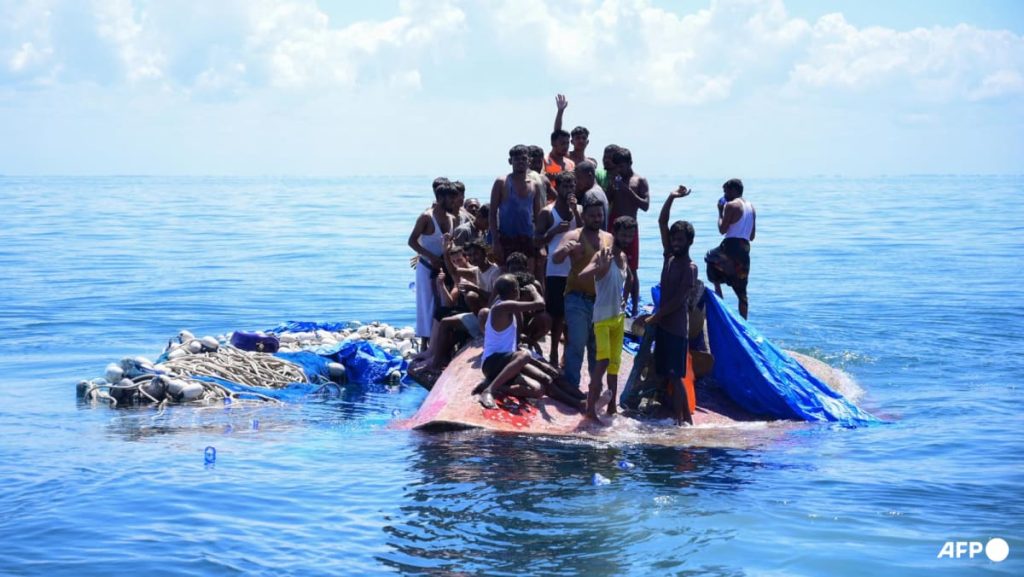re still unaccounted for. The boat had been adrift for weeks before capsizing near the coast of Aceh, Indonesia. The survivors were brought to a temporary shelter in Meulaboh, where they received medical treatment and support from local authorities and humanitarian organizations. The incident shed light on the ongoing crisis faced by Rohingya refugees, who often flee persecution in Myanmar and face dangerous journeys at sea in search of safety and better opportunities.
The decision to call off the search raised concerns about the fate of those still missing and the lack of resources dedicated to rescuing Rohingya refugees in distress at sea. The survivors recounted harrowing experiences of surviving at sea for weeks, facing hunger, dehydration, and uncertainty about their fate. Many of them had lost contact with their families and were unsure of their future prospects in Indonesia or their home country. The incident highlighted the need for more robust search and rescue operations for refugees in distress at sea, as well as efforts to address the root causes of displacement and persecution faced by Rohingya communities.
The Indonesian authorities faced criticism for their handling of the situation, with some survivors alleging that they were left stranded at sea for days before being rescued. The lack of coordination and resources dedicated to refugee rescue operations in the region further exacerbated the challenges faced by Rohingya refugees in their search for safety and protection. Local communities in Meulaboh stepped up to support the survivors, providing food, clothing, and temporary shelter to those in need. Humanitarian organizations also mobilized to provide assistance, but the lack of a comprehensive response to the refugee crisis highlighted the need for more sustained support and international cooperation to address the root causes of displacement and persecution.
The Rohingya refugee crisis is a complex and ongoing humanitarian challenge that requires a coordinated and multi-stakeholder approach to address the needs of those affected. The lack of legal pathways for refugees to seek asylum and protection exacerbates their vulnerability and exposes them to exploitation and abuse during their journeys. International organizations and governments must work together to provide safe and dignified solutions for Rohingya refugees, including resettlement, family reunification, and access to education and employment opportunities. The incident in Meulaboh underscored the urgent need for regional cooperation and solidarity to address the plight of Rohingya refugees and ensure their safety and well-being.
The survivors of the boat capsizing in Aceh faced a long and arduous journey to safety, with many uncertain about their future prospects and the fate of their missing loved ones. The international community must step up efforts to support Rohingya refugees and address the root causes of displacement, including ongoing persecution and discrimination in Myanmar. The survivors’ testimonies shed light on the resilience and strength of Rohingya communities in the face of adversity, as well as the need for greater attention and resources to support their recovery and integration in host countries. The incident in Meulaboh served as a stark reminder of the challenges faced by Rohingya refugees and the urgent need for coordinated action to ensure their rights and well-being are protected.
In conclusion, the boat capsizing incident in Aceh highlighted the ongoing plight of Rohingya refugees and the need for urgent action to address their protection and support. The survivors’ testimonies shed light on the harrowing experiences faced by refugees at sea and the challenges they encounter in their search for safety and security. The lack of coordinated response and resources dedicated to refugee rescue operations underscored the need for greater international cooperation and solidarity in addressing the Rohingya refugee crisis. As the survivors continue to recover and rebuild their lives in Meulaboh, it is crucial for governments, humanitarian organizations, and civil society to work together to provide safe and sustainable solutions for Rohingya refugees and address the root causes of displacement and persecution in Myanmar.















